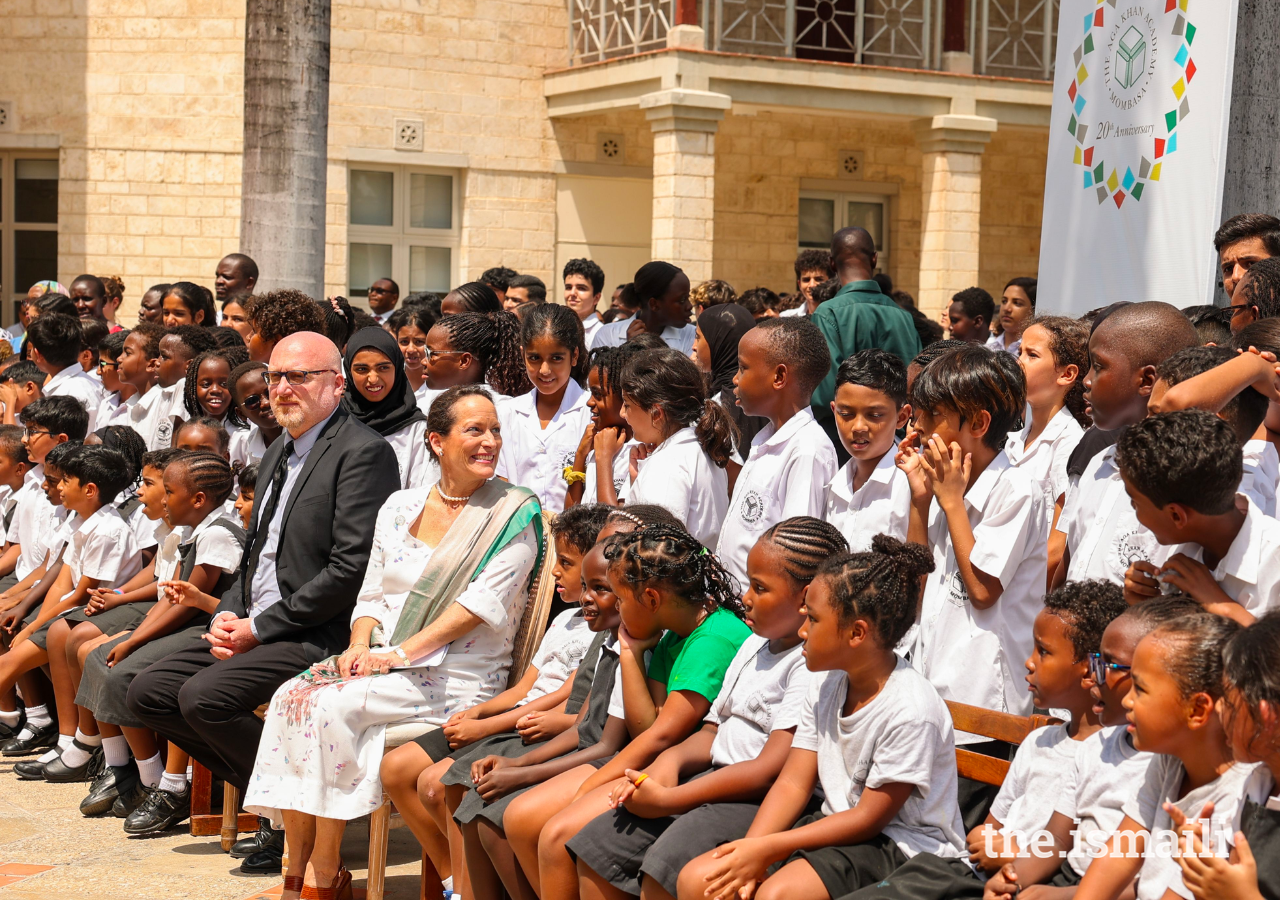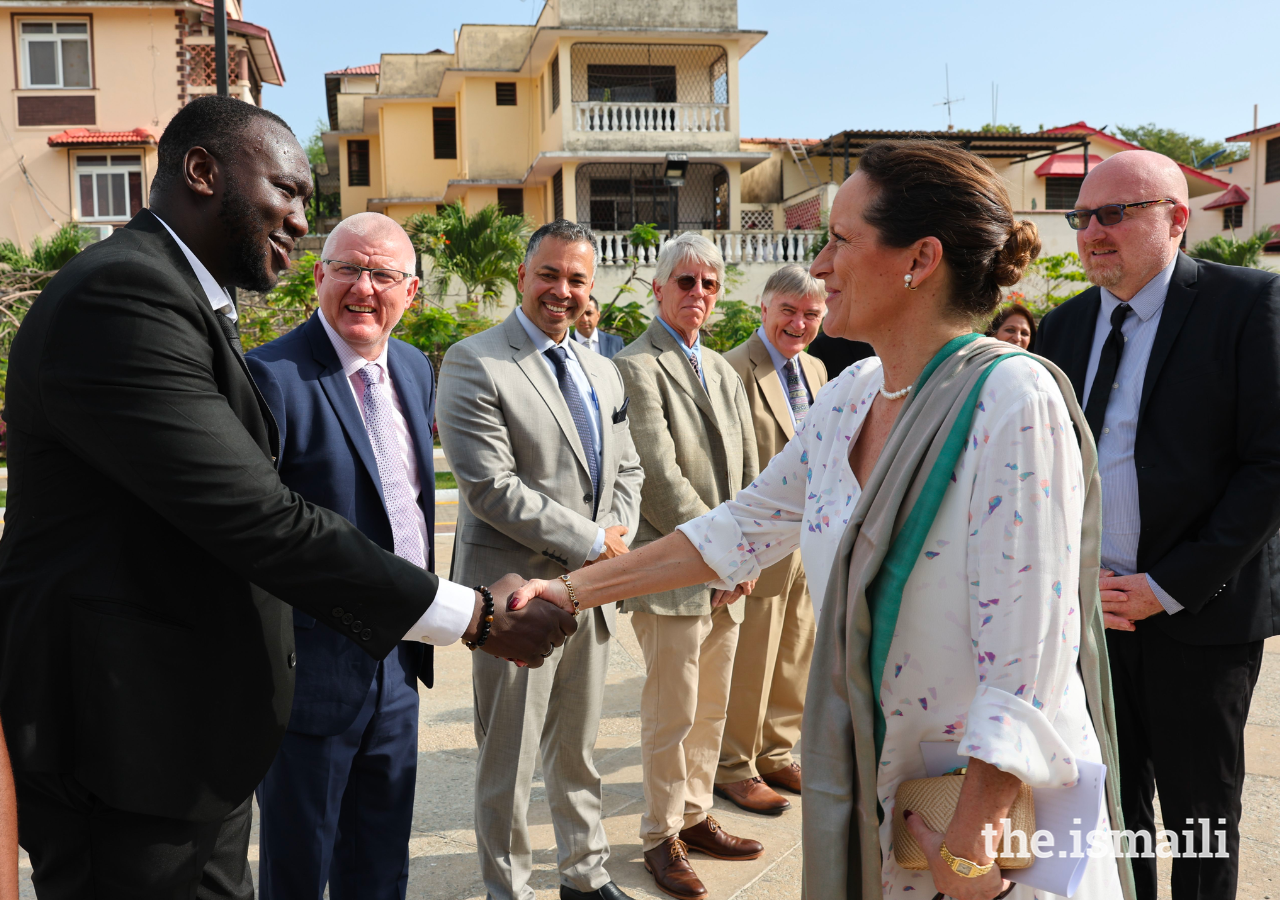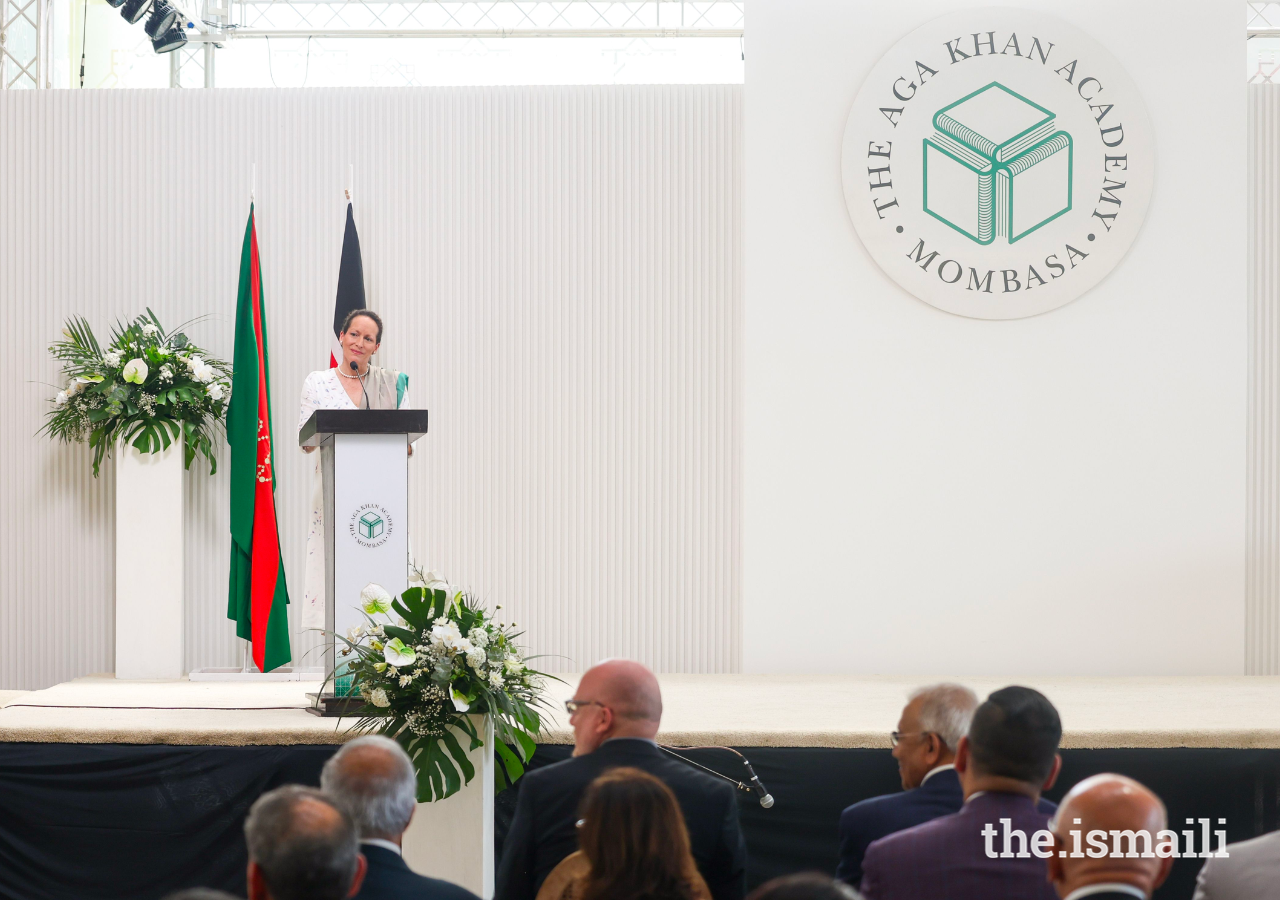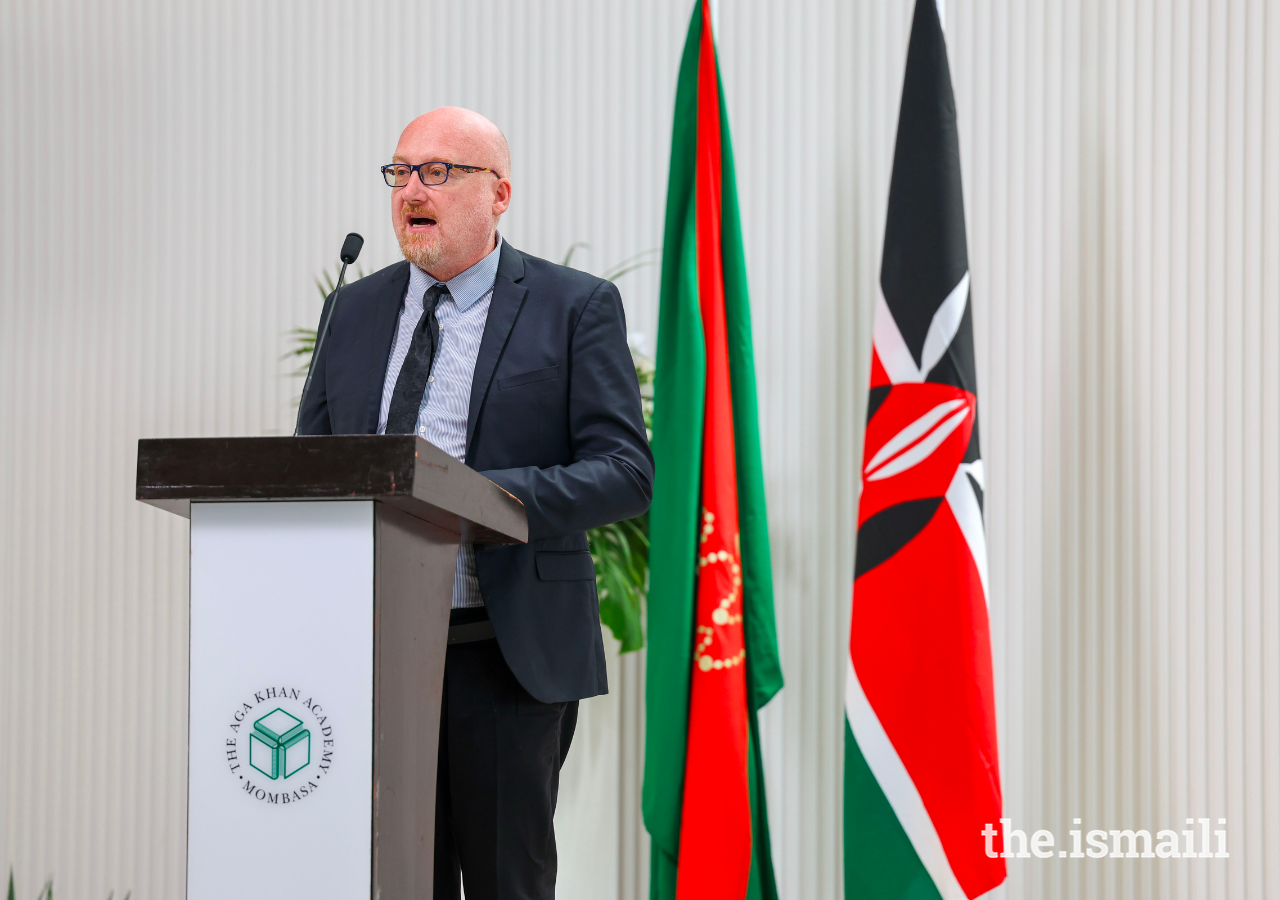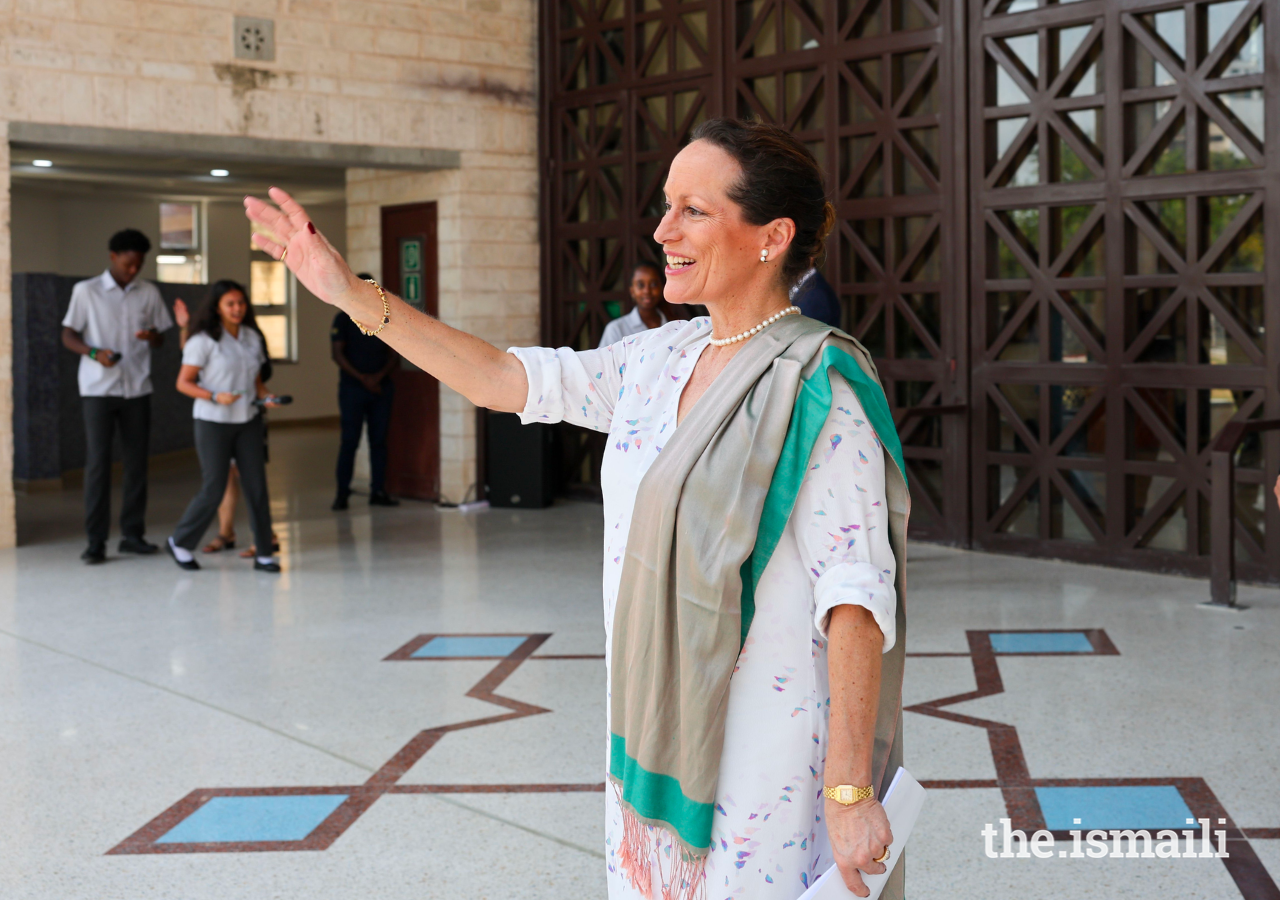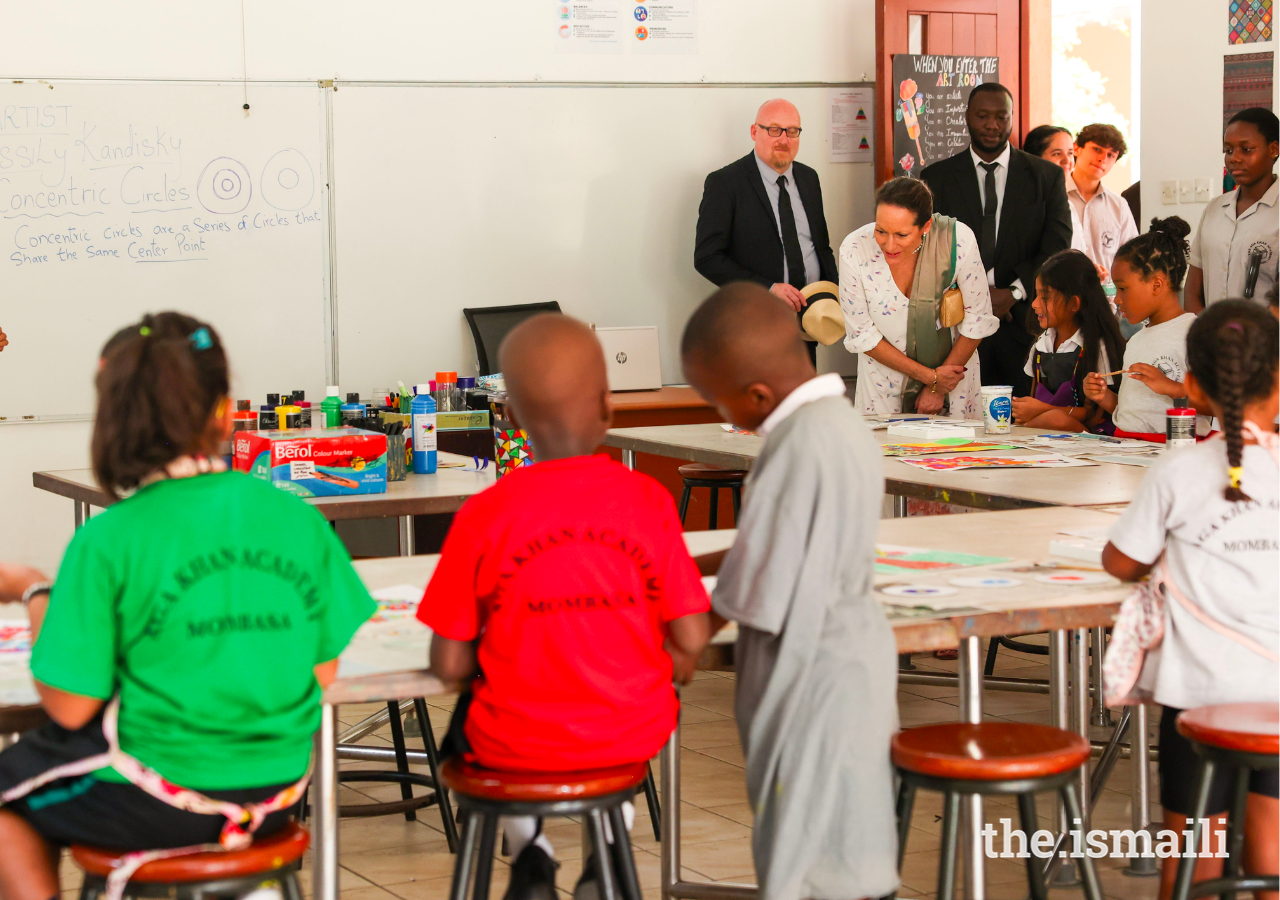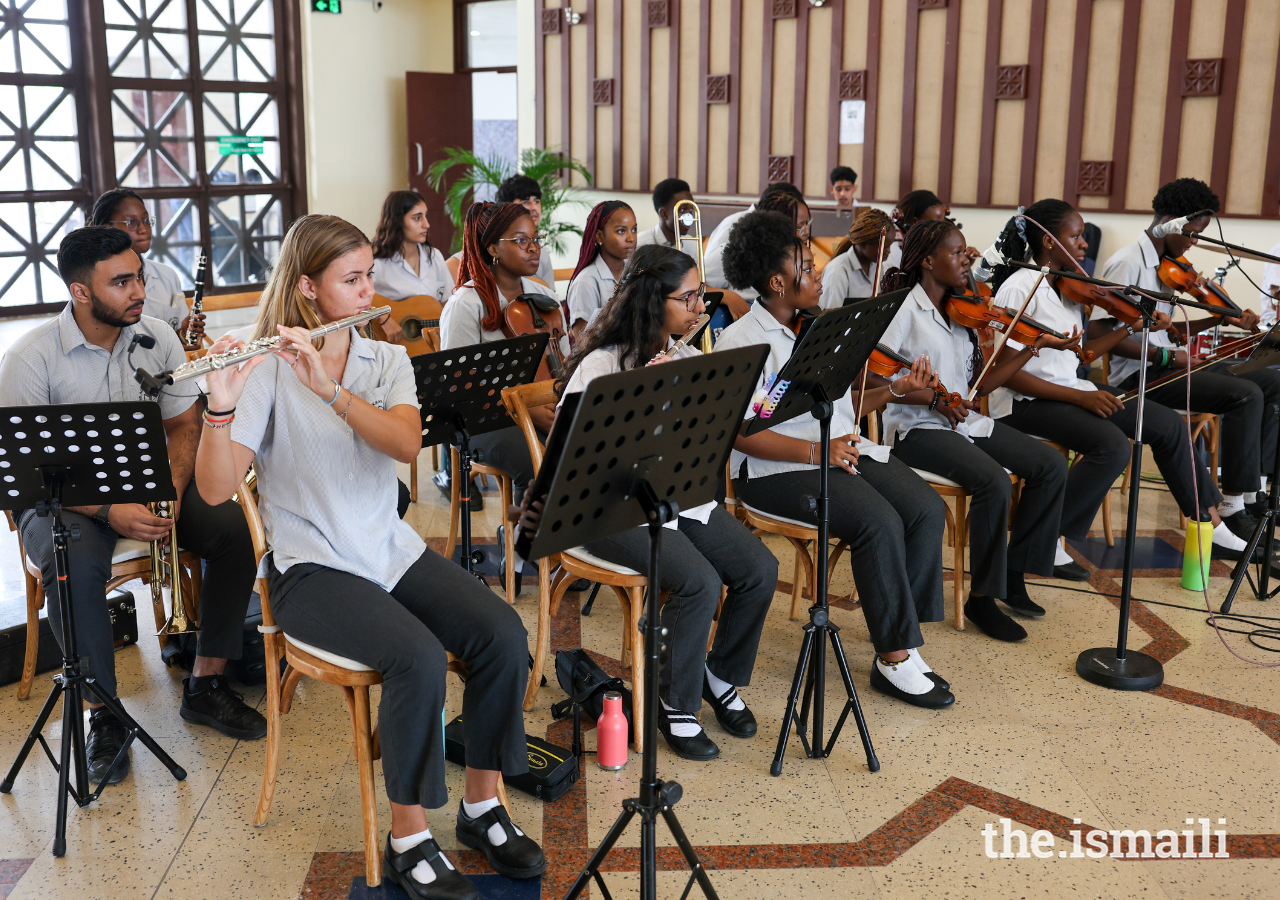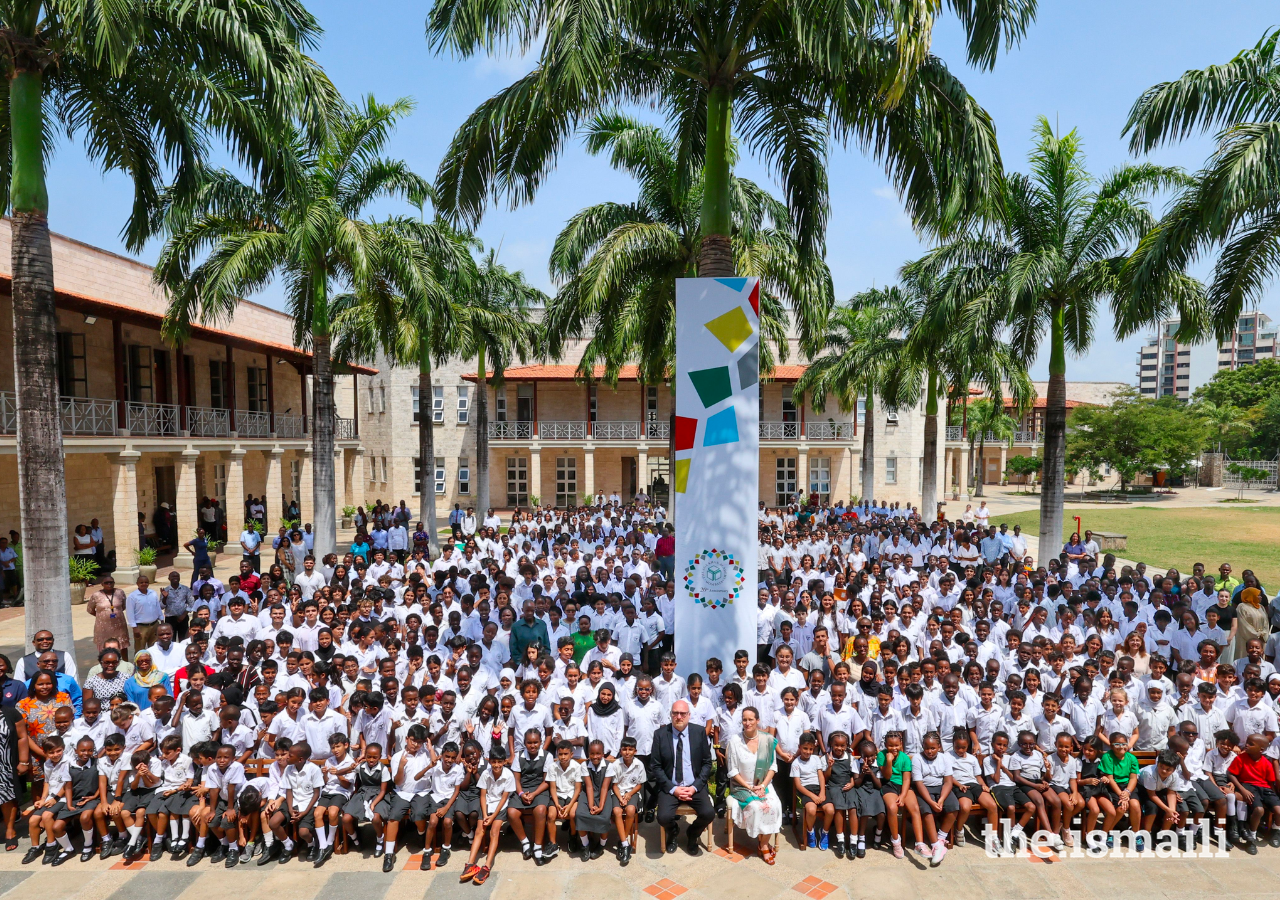Established in 2003, the school was inaugurated by Mawlana Hazar Imam and the former president of Kenya, the late Mwai Kibaki. It is the first in an integrated, global network of residential schools known as the Aga Khan Academies, with other campuses located in Hyderabad, India; Maputo, Mozambique; and Dhaka, Bangladesh.
“Schools are optimistic places,” Princess Zahra remarked in her address. “Although young people go through many challenging transitions in their lives, we aim to make the Academy a positive and memorable experience for all, one that helps young people to set the right course for their lives and build their character and attributes as leaders.
“The purpose of schooling here then,” she added, “is not merely to support students to pass exams to enable them to enter the next phase of their education. Of course, exams are important, but the Academy embarked on a broader ambition, one that is at the heart of AKDN’s work for the betterment of society.”
To mark the occasion, Princess Zahra cut a cake outside the Commons building and joined the entire school for a group photograph. Students presented a gift to her on stage and also prepared a gift for Mawlana Hazar Imam. They requested her to pass their gratitude to Hazar Imam for his vision in establishing the Aga Khan Academies.
For two decades now, the Academy in Mombasa has been integral to the local community and beyond by offering high-quality education and developing homegrown, ethical leaders. With a curriculum centred on the three International Baccalaureate (IB) programmes, graduates have progressed to prestigious universities around the world, such as Yale University, African Leadership University, Columbia University, the London School of Economics and more, and were offered over US $48 million in scholarships from 2016-2023.
The Academies have a strong service learning programme and encourage students to be stewards who continue to help improve the quality of life in their communities after graduation. Many alumni have done so, such as Samara Visram (Class of 2014), who is building a school in Kikambala, Kenya. Additionally, Ham Serunjogi (Class of 2012) was named an honouree of the Forbes 30 Under 30 Finance List of 2023 and was appointed to serve as an advisor to the US president on African diaspora engagement.
Head of Academy Mr Colin Webster welcomed national and local government representatives, AKDN leadership, donors, students, teachers, and support staff to this morning’s intimate anniversary event. He explained what makes this school special.
“Leadership is just one aspect of our student learner profile, our students not only learn leadership but are given opportunities to develop leadership, both in and out of the classroom and on and off the campus,” he said.
“From the beginning, the Academy has asked students not just to be leaders but to be ethical leaders. This is something the world often feels in short supply of,” Mr Webster added. “More than anything we prepare our students to go out and live in a pluralistic world. Today, our students get to experience that pluralism in the student body with over 20-25 different nationalities and those who practise many different faiths.”
As part of the Academies mission, the Academy admits students based on merit, regardless of their ability to pay, with over 50 percent of the students receiving some form of financial assistance.
“When I came to the Academy, I was shown how to be open-minded, how to be adventurous, creative, how to not just be confined into that comfort zone that limits me and what I could achieve,” said Raphael Mwachiti, Class of 2021, who received a full scholarship for seven years through its Talent Identification Programme and is currently studying at the University of British Columbia.
The Academy also invests in its teachers. Weekly training on up-to-date teaching practices is provided to teachers, 90 percent of whom are Kenyan. The Academy aims to have a wider impact in the country and houses a Professional Development Centre (PDC) to build teaching capacity in Kenya by investing substantially in professional learning for teachers at local government schools.
“The Academy has offered me a challenging and exciting environment,” said Mary Nyandieka, an integrated humanities and geography teacher, who has taught at the Academy since 2003.
“Professional development has been a part of my weekly routine, which has helped me improve my teaching. The ability to be a learner, along with my students, is wonderful. The Academy is an excellent place to grow as a teacher, and a place where I have seen the most talented young men and women come through. I am happy and grateful that I have been a part of this incredible journey.”

